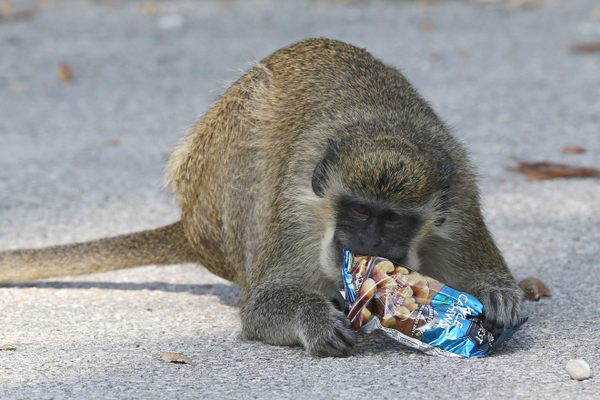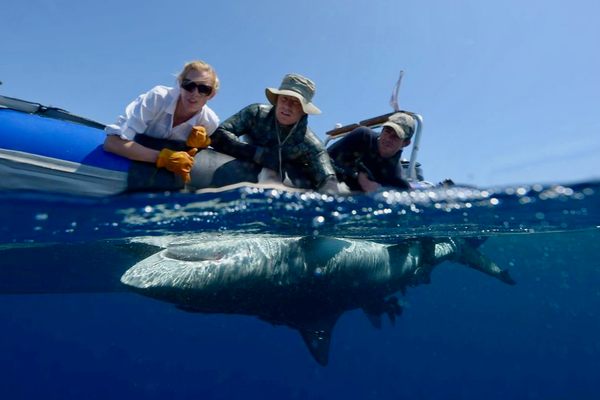Family Planning For Sharks Now Involves Multigenerational Virgin Births

In the first recorded instance of multigenerational parthenogenesis, a whitespotted bamboo shark gave birth to a female shark that also reproduced asexually. (Photo: yvonne n/Wikipedia Commons CC BY 2.0)
While we’ve known about parthenogenesis, also known as animal virgin birth, for a while, we’ve never seen this kind of asexual reproduction happen for multiple generations. Until now.
A study published in the Journal of Fish Biology contains the first recorded instance of two virgin births in a family of whitespotted bamboo sharks. A captive female bamboo shark gave birth to nine offspring without copulating with a male shark, and remarkably, one of the offspring females reproduced asexually again, herself producing viable offspring.
Prior to this study, animal virgin birth has been thought of as an anomaly and an evolutionary dead end in sexually reproductive animals. Because the offspring from this type of parthenogenesis only contain the genetic makeup of one individual, their chances of survival are pretty low. These offspring have also been regarded as infertile. But the bamboo shark births show that an animal conceived by parthenogenesis is itself capable of reproducing via second-generation parthenogenesis.
The type of parthenogenesis, involving animals that typically reproduce sexually, happens as a result of a process called automixis. Females provide both sets of chromosomes by fusing the egg with a cell containing a set of “sister” chromosomes; a second individual is not required. Originally it was thought that these types of births could only occur in captivity, until instances in the wild were recorded with a smalltooth sawfish and a pit viper.

The double virgin birth disproves the idea that parthenogenesis can only occur in one generation and produces infertile offspring. (Photo: Sander van der Wel/Wikipedia Commons CC BY-SA 2.0)
Animal virgin births are also not as rare as they would seem: another study finds that parthenogenesis occurs in up to 20 snake species that otherwise reproduce sexually. Though there is still a lot to be uncovered about why such virgin births occur, these latest findings provide support to the idea that parthenogenesis is an evolutionary alternative to sexual reproduction.

















Follow us on Twitter to get the latest on the world's hidden wonders.
Like us on Facebook to get the latest on the world's hidden wonders.
Follow us on Twitter Like us on Facebook